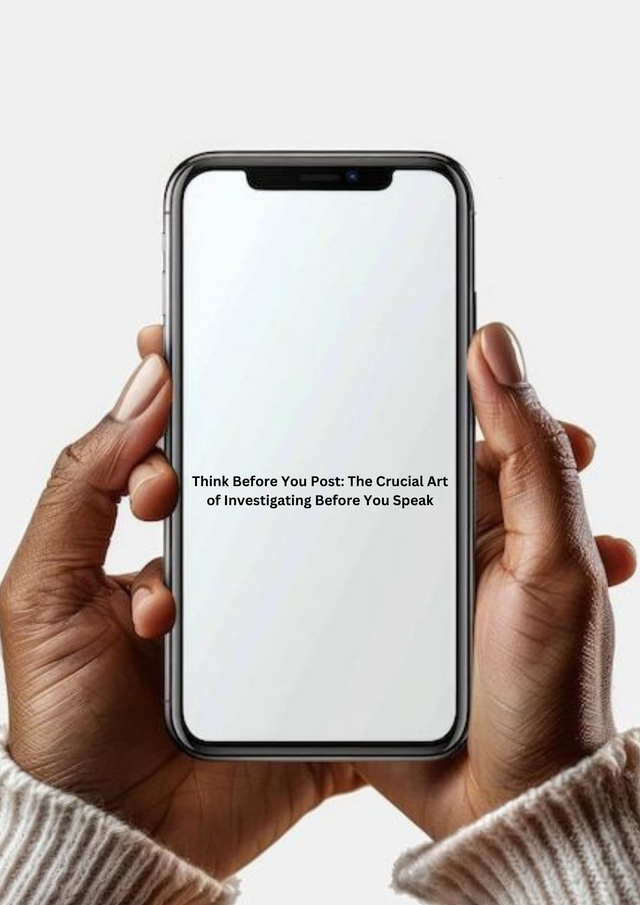
We have all been there: scrolling through social media, stumbling upon a post that gets your blood boiling with a wild story that seems too juicy not to share. In a digital age where the race to react is almost as intense as the race to break the news, pausing to investigate a topic before commenting or sharing might feel like a buzzkill. But trust me, it is worth it—and here are the reasons why.
Why the Hurry to Share Can Hurt
Social media thrives on speed. Most platforms make sharing seamless, with algorithms rewarding early engagement and viral content. But here is the catch: what spreads fastest is not always true. A 2018 MIT study found that false information on Twitter travels quicker and reaches more people than the truth. Why? Because fake news is often sensational, triggering stronger emotions like outrage or shock.
When we hit post or retweet without fact-checking, we risk spreading misinformation. Worse, we may unintentionally contribute to reputational damage, panic, or even harm real lives. Remember the viral stories that turned out to be hoaxes, ruining careers or sparking unnecessary public fear?
According to the American religious leader and influential public speaker Williams J. H. Boetcker- Beware of ignorance when in motion; look out for inexperience when in action and beware of the majority when mentally poisoned with misinformation, for collective ignorance does not become wisdom.
How to Spot Red Flags
Before you react, here is a quick checklist to apply to any post, headline, or claim:
Source Check: Where did this story originate? Is it from a verified source or a random account? Look for credible outlets or experts.
Date Check: Believe it or not, many breaking news posts are recycled stories from years ago and are irrelevant to current events.
Cross-Verify: A quick search can reveal if multiple reputable sources are reporting the same facts. If it is only one sketchy site, proceed with caution.
Gut Check: Does the story seem too outrageous or perfectly aligned with your biases? Sensational claims often deserve extra scrutiny.
The Consequences of Not Investigating
Let us discuss the impact of misinformation. When it spreads, it does not just disappear— it lingers. Reputations, relationships, and even public trust can suffer significant damage. For example, if you comment on a post accusing someone of doing wrong, only to discover that the information was false, the harm is already done. An apology will not repair the damage.
It is not just others who are affected; sharing fake news can damage your credibility. Your followers look to you as a reliable source of information. If you break that trust, you risk losing their respect and support.
Investigating Does not Have to Be Tough.
Good news! Being a responsible sharer does not mean becoming a full-time journalist. Here is what you can do in under five minutes:
Google It: Run a quick search on the topic. A few extra minutes can often clarify whether the story holds water.
Fact-Check Sites: Use tools like Snopes, FactCheck.org, or Politifact to validate viral claims.
Reverse Image Search: Usually, reverse image search can reveal if a photo is out of context.
Lead by Example
The best way to combat misinformation is to set a positive example within your circle. Before you react, take a moment to pause, and if you come across a false claim, share your findings with others. This action might encourage those around you to approach social media with a critical perspective.
The next time a headline tempts you to share a quick opinion, take a breath and investigate further. Your voice is powerful—so use it wisely. In a world filled with noise, let us strive to be among those who speak thoughtfully and truthfully.
What about you? Have you ever shared something without verifying it? Or have you successfully stopped a piece of misinformation from spreading? Share your experience in the comments—let us keep the conversation going!